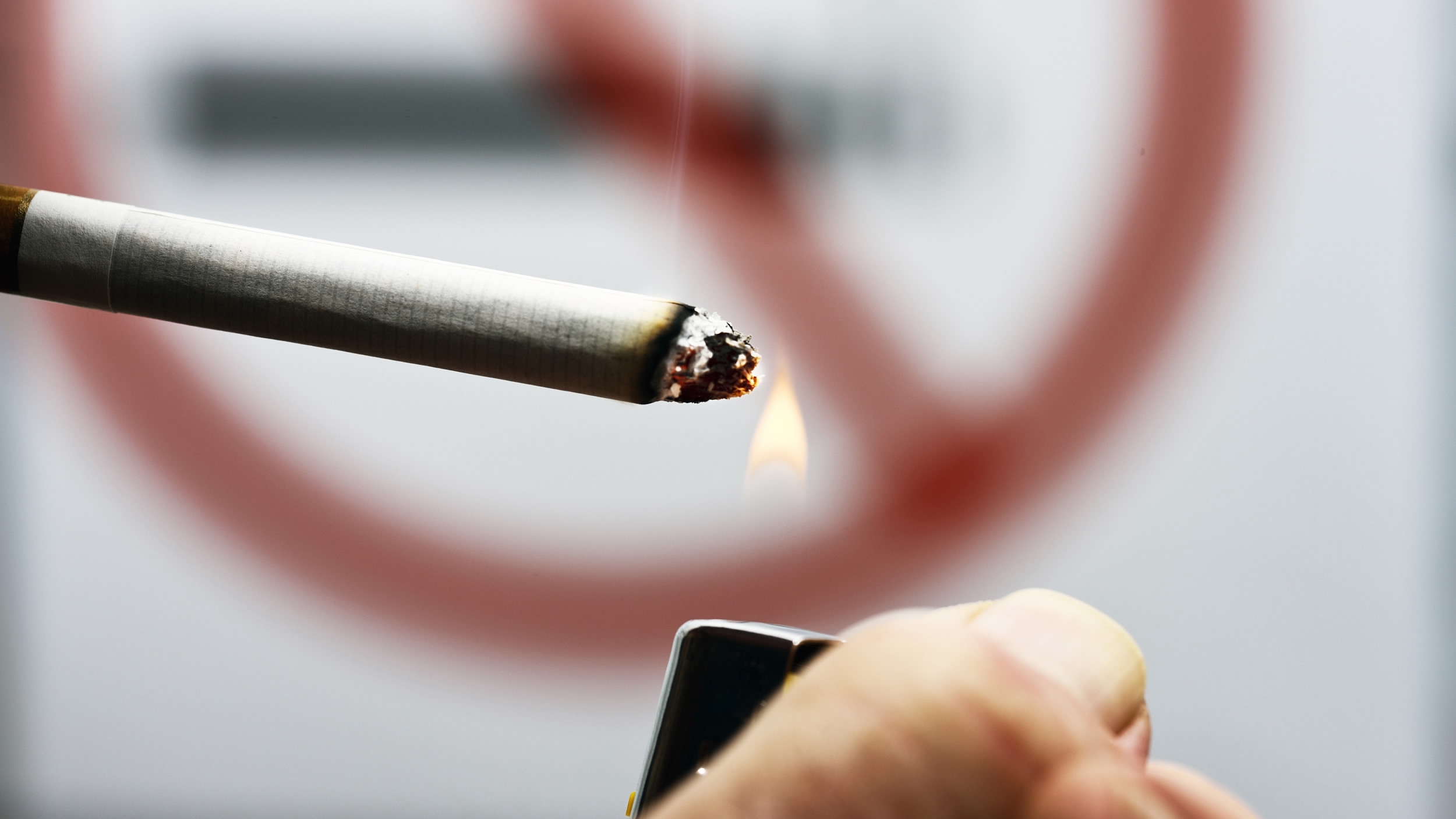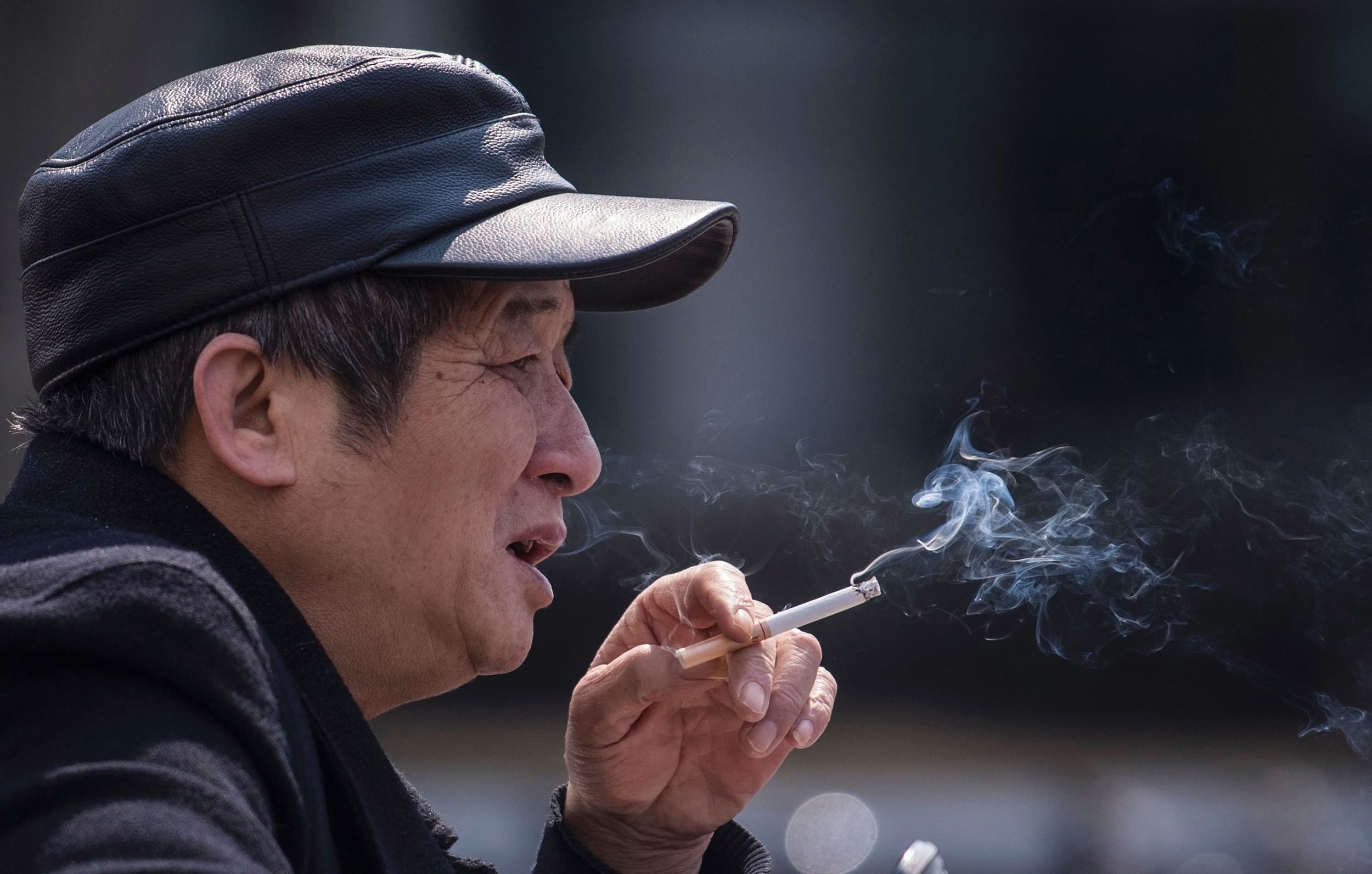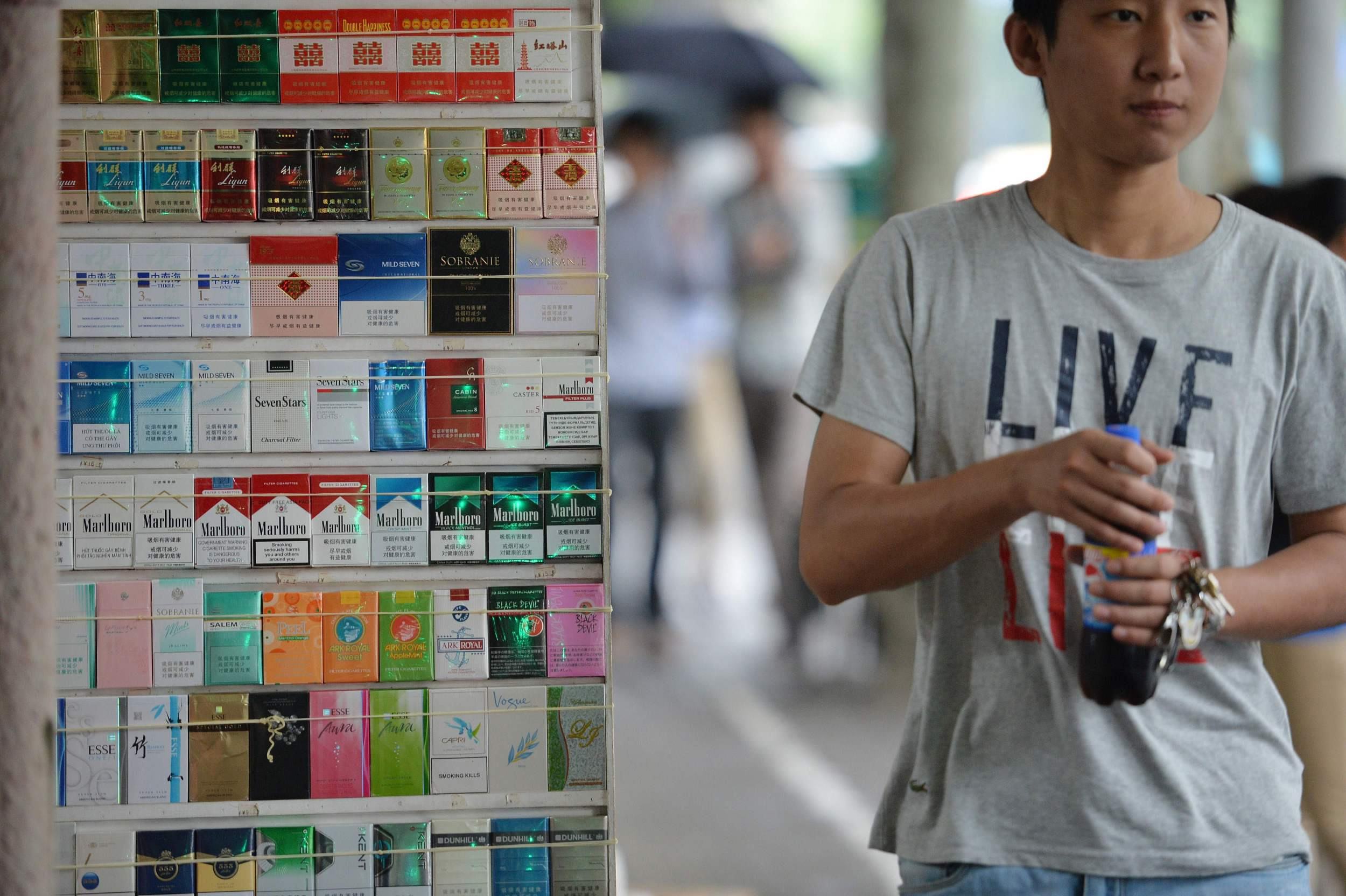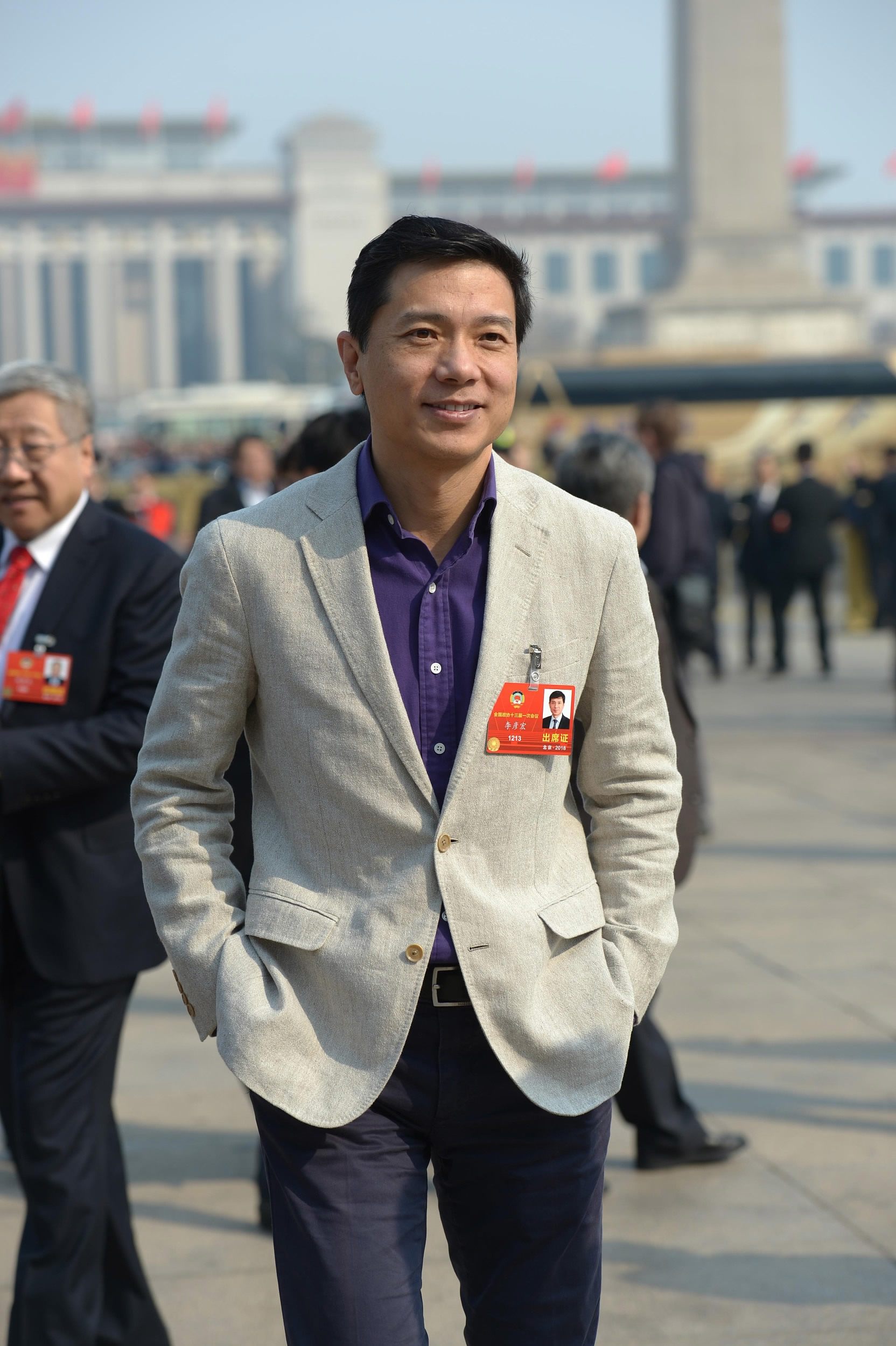
China
18:42, 15-Mar-2018
State Council reform to tackle role of big tobacco in policy-making
Nicholas Moore

A proposed reform to China’s most important tobacco control group is expected to significantly reduce the influence of “big tobacco” in policy making, as the country comes to terms with its dangerous cigarette addiction.
The State Council announced Tuesday that the mechanism in place to implement the World Health Organization’s Framework Convention on Tobacco Control (FCTC) would be overhauled, taking power from the hands of the tobacco industry and placing it in those of the newly-established National Health Commission.
The FCTC was established as the first ever global public health treaty, and aims to combat tobacco use worldwide and guarantee people the right to the highest standard of health.

VCG Photo
VCG Photo
China signed up to the FCTC in 2005, and set up a mechanism made up of eight agencies and ministries to implement it in China. While the Ministry of Health (later replaced by the National Health and Family Planning Commission) was among the eight agencies, the group was heavily weighted towards the tobacco industry.
Not only did the State Tobacco Monopoly Administration (STMA) have one of the eight seats at the mechanism’s table – the STMA’s parent organization, the Ministry of Industry and Information Technology (MIIT) was the group’s chair.
The conflict of interest was obvious – the country’s tobacco producers held much more power than the health ministry over tobacco control. Big tobacco was in charge of putting health warnings on its own cigarette packaging – leaving China far behind other countries in terms of warning the public on the dangers of smoking.

A man passes a tobacco shop in Shanghai on World No Tobacco Day on May 31, 2013. According to the terms of the FCTC, all advertising and public display of tobacco products should be banned. /VCG Photo
A man passes a tobacco shop in Shanghai on World No Tobacco Day on May 31, 2013. According to the terms of the FCTC, all advertising and public display of tobacco products should be banned. /VCG Photo
The STMA’s deputy director Duan Tieli said in 2016 graphic pictures on cigarette boxes were “not in keeping with Chinese cultural traditions,” despite numerous studies showing such control methods were very effective deterrents.
The latest reform will see the new National Health Commission chair the FCTC mechanism. While the STMA and MIIT are still part of the mechanism, the emphasis will now be more focused on health.
Kelvin Khow Chuan Heng, a technical officer on the WHO’s Tobacco Free Initiative in China, told CGTN that “China has faced increasing isolation” regarding its pace on implementing the FCTC, which has been ratified by 180 countries and regions.
Khow added that China’s role as a “global player and a global leader” meant there was “greater pressure” to follow other countries in enforcing stricter tobacco control.
The reform highlights growing official support for tobacco control. Qi Guoyan, a deputy to the 13th National People’s Congress, used the political event to suggest the immediate implementation of a nationwide ban on smoking in public places, calling for policy to comply with the terms of the FCTC.

CPPCC member and Baidu CEO Li Yanhong (Robin Li) is a vocal opponent of tobacco use, and has banned smoking in all of Baidu's offices. /VCG Photo
CPPCC member and Baidu CEO Li Yanhong (Robin Li) is a vocal opponent of tobacco use, and has banned smoking in all of Baidu's offices. /VCG Photo
Qi’s proposal was also backed by Feng Danlong, a member of the National Committee of the Chinese People’s Political Consultative Conference.
Feng, who is a director at pharmaceutical company Pfizer, said that she was “optimistic that a nationwide ban on smoking in public places could be realized.” She also called for more work on public education about the harmful effects of tobacco use.
On Wednesday, Wang Chen, a CPPCC member and president of the Chinese Academy of Medical Sciences, told Xinhua that authorities should consider using “economic means to enforce tobacco control,” such as a hike on taxes and cigarette prices.
Wang then suggested that those taxes be put towards investment in the health sector, adding that higher taxes “would not affect the economic output of the tobacco industry, but would reduce the amount of tobacco on sale.”
China Tobacco, a state-owned enterprise that contributes a staggering 1.1 trillion yuan (174 billion US dollars) in tax revenue every year, is a powerful case that is used by the tobacco industry to justify resisting tougher controls on smoking.

China Tobacco is one of China's largest state-owned enterprises. /VCG Photo
China Tobacco is one of China's largest state-owned enterprises. /VCG Photo
However, the Healthy China 2030 initiative, which Chinese President Xi Jinping launched in 2016, has marked a growing realization of the long-term costs of tobacco. With some 315 million smokers, China potentially faces a cancer and heart disease crisis in the coming decades.
The WHO reported that tobacco use cost China 350 billion yuan (57 billion US dollars) in 2014 alone – a conservative estimate which represents a 1,000 percent increase since the year 2000.
Studies by the WHO have indicated that raising cigarette prices in China by 50 percent would save 20 million lives and prevent 8 million people from sinking into poverty, as well as increasing government revenue by 442 billion yuan (66 billion US dollars) every year.

SITEMAP
Copyright © 2018 CGTN. Beijing ICP prepared NO.16065310-3
Copyright © 2018 CGTN. Beijing ICP prepared NO.16065310-3